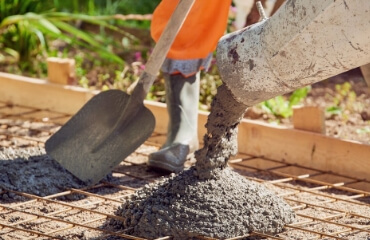How to Secure Funding for Your New Home at London
Introduction: Why Choosing the Right Geotechnical Investigation Company Matters
So, you’ve got a big construction project lined up, and everything seems good to go, but there’s one critical piece missing: a geotechnical investigation. You’re probably thinking, “Do I really need this?” The short answer? Yes, absolutely! Without a proper geotechnical investigation, you’re essentially flying blind. This is the process that determines whether your site can support your grand vision, or if it’s sitting on shaky ground—literally. But how do you find the right geotechnical investigation company to make sure your project stays rock solid? Let’s explore
What is Geotechnical Investigation? Understanding the Basics
Before we jump into how to find the best geotechnical investigation company, let’s talk about what geotechnical investigation actually is. In simple terms, geotechnical investigation is the process of evaluating the physical properties of soil, rock, and groundwater at your project site. It helps determine if the land can safely support your structure and what kind of foundation is necessary. It’s not just about digging around in the dirt; it’s science, and it’s crucial for construction projects—whether you’re building a skyscraper or a modest home.
Geotechnical engineers analyze everything from soil composition to groundwater levels. They provide critical data that can impact design decisions and even prevent future disasters, like foundation cracking or landslides. This means that picking the right team for this investigation can make or break your project—literally!
Key Services Offered by Geotechnical Investigation Companies
When searching for a geotechnical investigation company, you need to know what services they offer. While soil testing might be top of mind, the best companies offer a wide range of services that cover all your bases:
- Soil Analysis and Testing: Basic but essential. The company will assess soil composition, compaction, and other factors.
- Foundation Assessment: Will your foundation be stable? A detailed analysis of what type of foundation works best for your site.
- Slope Stability and Risk Evaluation: For those building on or near hills, this is key to preventing future landslides.
- Environmental Impact Studies: These go beyond the soil to evaluate how the environment around your project may be affected.
These are just a few examples of what a high-quality geotechnical investigation company can provide. The broader the range of services, the more comprehensive your investigation will be.


Why Experience and Expertise Are Essential
Okay, so you’ve got a list of companies offering all the services you need—what’s next? Look at their experience and expertise. A geotechnical investigation isn’t a one-size-fits-all service; each project is unique, and experience helps companies navigate complex situations.
Take a look at the geotechnical investigation company’s portfolio and case studies. Have they worked on projects similar to yours? Do they specialize in the kind of land you’re working with? For example, if you’re building on coastal soil, you’ll want a company familiar with marine conditions. Experience can mean the difference between smooth sailing and unexpected problems that delay your project or blow your budget.
Certifications and Accreditations to Look For
One way to ensure a company knows what they’re doing is to check for relevant certifications and accreditations. Look for companies that comply with industry standards, and guidelines. A certified lab ensures that the soil samples and tests you get are accurate and reliable.
These certifications serve as a quality stamp, showing that the company takes professionalism seriously. It’s like getting a recommendation from the industry itself—only with a lot more paperwork involved!
Evaluating the Company’s Equipment and Technology
Now, here’s where things get a bit technical. Modern technology in geotechnical investigations has advanced considerably, and a company that invests in advanced equipment is one that takes its job seriously. Ask what kind of tools and technology they use for tasks like drilling, sampling, and laboratory testing.
Companies using outdated or subpar equipment are more likely to provide inaccurate data. Look for companies that stay current with technology, as these can provide quicker results, more precise data, and ultimately save you time and money.
How to Compare Pricing: Value for Money vs. Lowest Bid
It’s tempting to go with the cheapest bid, but when it comes to geotechnical investigations, you really do get what you pay for. Low costs can often mean cutting corners—maybe the company doesn’t use certified labs or the latest technology. Maybe their team lacks the necessary experience.
Instead of looking for the lowest price, look for value. How comprehensive is the service package? What’s included in their pricing structure? In some cases, spending a little extra upfront can save you from costly repairs or project delays down the line.
Reputation Matters: Researching Reviews and Client Testimonials
Finally, never underestimate the power of a good reputation. Researching online reviews and client testimonials can give you a clearer picture of what to expect. Did previous clients praise their thoroughness and professionalism, or were there complaints about missed deadlines and poor communication?
Don’t just rely on testimonials from the company’s website; search third-party review sites or even ask for references you can contact directly. Ask previous clients about their experience, whether the project was completed on time, and how responsive the company was to issues.
Conclusion: Making the Right Choice for Your Project
Choosing the right geotechnical investigation company is a decision you can’t afford to take lightly. It requires a mix of research, patience, and a bit of gut feeling. Prioritize experience, certifications, modern technology, and positive reviews to ensure you’re making a solid choice—pun intended!
Remember, this isn’t just about getting a soil test; it’s about laying a strong foundation (literally and figuratively) for your entire project. Do your homework, and you’ll avoid future headaches, delays, and budget overruns. Your project’s success depends on the ground you build on, so make sure it’s as stable as possible.
